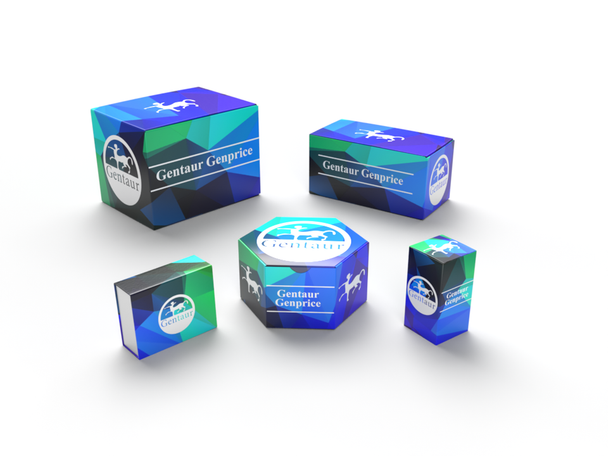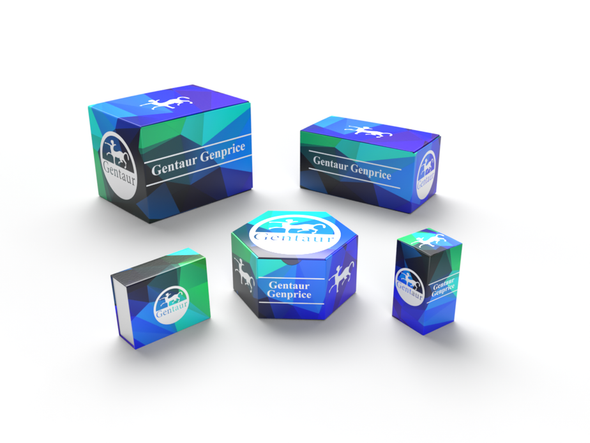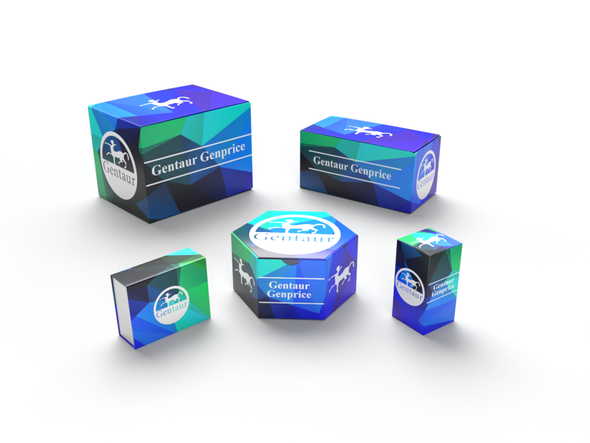Description
Rabbit Anti-Human FGF-4 Antibody | 102-P258 | Gentaur UK, US & Europe Distribution
Species: Anti-Human
Host / biotech: Rabbit
Comment: N/A
Label: N/A
Clone / Antibody feature: Rabbit IgG
Subcategory: Polyclonal Antibody
Category: Antibody
Synonyms: FGF4; HST; KFGF; HST-1; HSTF1; K-FGF; HBGF-4
Isotype: N/A
Application: ELISA, WB
Detection Range: N/A
Species Reactivity/Cross reactivity: Human
Antigen: Recombinant Human FGF-4
Description: FGF4 (fibroblast growth factor4), also known as FGF-K or K-FGF (Kaposi’s sarcomaassociated FGF), is a 25 kDa secreted, heparinbinding member of the FGF family. The human FGF4 cDNA encodes 206 amino acids (aa) with a 33 aa signal sequence and a 173 aa mature protein with an FGF homology domain that contains a heparin binding region near the C terminus. Mature human FGF 4 (aa 71-206) shares 91%, 82%, 94% and 91% aa identity with mouse, rat, canine and bovine FGF4, respectively. Human FGF4 has been shown to exhibit cross species activity. Expression of FGF4 and its receptors, FGF R1c, 2c, 3c and 4, is spatially and temporally regulated during embryonic development. Its expression in the mouse trophoblast inner cell mass promotes expression of FGF R2, and is required for maintenance of the troph-ectoderm and primitive endoderm. Later in mouse development, FGF4 works together with FGF8 to mediate the activities of the apical ectodermal ridge, which direct the outgrowth and patterning of vertebrate limbs. FGF4 is proposed to play a physiologically relevant role in human embryonic stem cell selfrenewal. It promotes stem cell proliferation, but may also aid differentiation depending on context and concentration, and is often included in embryonic stem cell media in vitro. A C-terminally truncated 15 kDa isoform that opposes full length FGF4 and promotes differentiation is endogenously expressed in human embryonic stem cells. FGF4 is mitogenic for fibroblasts and endothelial cells in vitro and has autocrine transforming potential. It is a potent angiogenesis promoter in vivo and has been investigated as therapy for coronary artery disease.
Purity Confirmation: N/A
Endotoxin: N/A
Formulation: lyophilized from PBS
Storage Handling Stability: The lyophilized antibody is stable for at least 2 years from date of receipt at -20°C. The reconstituted antibody is stable for at least two weeks at 2-8°C. Frozen aliquots are stable for at least 6 months when stored at -20°C.
Reconstituation: Centrifuge vial prior to opening. Reconstitute in sterile water to a concentration of 0.1-1.0 mg/ml.
Molecular Weight: N/A
Lenght (aa): N/A
Protein Sequence: N/A
NCBI Gene ID: 2249






